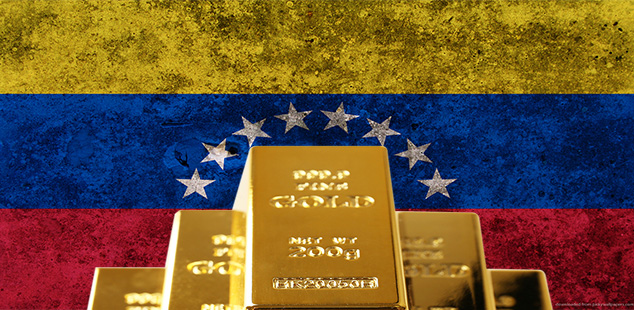
2015 offered lots of news around the globe as nations rushed to put their faith in gold rather than in wobbly currencies. First the Swiss announced they would de-link their franc to the Euro in favor of gold, then the Chinese continued snapping up huge quantities of bullion in order to mitigate their currency crisis. 2016 appears to be another year where gold is a better investment than currency across the board, as Venezuela has made headlines by announcing that they will sell off a huge portion of gold in order to try to bring their struggling economy under control.
Oil and Politics in Venezuela
The legacy of Hugo Chavez’s socialism is being felt rather roughly in today’s Venezuela. The president (a dictator in everything but name) instituted tremendous economic reforms upon taking the Venezuelan office in 1999, where he ruled for fifteen years. Nationalizing the country’s oil market, Chavez allowed Venezuelans to purchase gasoline for just a few cents per gallon but also smoothed the way for tremendous corruption throughout the nation. As the price of oil peaked and declined, furthermore, national control over the commodity became more a hindrance than a benefit. Elections held in the past month proved a referendum on Chavez as well as his ideas, where nearly three in four Venezuelans voted for the opposition, who promised to get their crumbling economy under control. The first step now is to pay down the national debt.
Cash or Credit? How About Gold?
Currently, the nation owes about forty billion dollars to international lenders, including the United States and the European Union 1. The first of the overseas creditors have come calling to collect these debts by the end of February, leaving Venezuela scrambling to come up with about three billion dollars to pay creditors, as well as about $1.5 billion to pay bondholders. For a nation that relies almost entirely on oil’s sinking value, much of this capital simply isn’t there. Instead, Venezuela has turned to selling its gold stocks in order to make good on its debts. Venezuela sent about $1.3 billion worth of gold bullion to Switzerland and is on schedule to send more still 2. The country’s gold reserves have dropped from $15 billion in November to about $10 billion in January. Given that Venezuela has only about one billion in cash on hand, it appears that their gold is about to disappear much more quickly.
Gold in the International Marketplace
Venezuela’s predicament indicates the tremendous value of gold in today’s global economy. It’s not just the poor nations who have to use gold as a wedge against bankruptcy, but many of the richest nations as well. The largest nations and central banks are increasingly putting more faith in physical bullion than they are in their own cash. It’s a move that individual investors need to follow: at a time when countries are competing to devalue currencies, the notes in your wallet are worth less and less each day, while gold only grows stronger.
Additional Sources:
1 – http://www.institutionalinvestor.com/article/3439791/banking-and-capital-markets-emerging-markets/big-debts-mean-rising-default-risks-for-venezuela.html
2 – http://money.cnn.com/2016/02/25/news/economy/venezuela-gold-debt/

